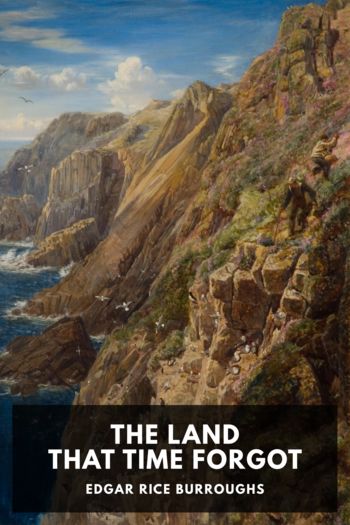South!, Ernest Shackleton [good books to read in english TXT] 📗

- Author: Ernest Shackleton
Book online «South!, Ernest Shackleton [good books to read in english TXT] 📗». Author Ernest Shackleton
I took the schooner south at every chance, but always the line of ice blocked the way. The engineer, who happened to be an American, did things to the engines occasionally, but he could not keep them running, and, the persistent south winds were dead ahead. It was hard to turn back a third time, but I realized we could not reach the island under those conditions, and we must turn north in order to clear the ship of heavy masses of ice. So we set a northerly course, and after a tempestuous passage reached Port Stanley once more. This was the third reverse, but I did not abandon my belief that the ice would not remain fast around Elephant Island during the winter, whatever the armchair experts at home might say. We reached Port Stanley in the schooner on August 8, and I learned there that the ship Discovery was to leave England at once and would be at the Falkland Islands about the middle of September. My good friend the Governor said I could settle down at Port Stanley and take things quietly for a few weeks. The street of that port is about a mile and a half long. It has the slaughterhouse at one end and the graveyard at the other. The chief distraction is to walk from the slaughterhouse to the graveyard. For a change one may walk from the graveyard to the slaughterhouse. Ellaline Terriss was born at Port Stanley—a fact not forgotten by the residents, but she has not lived there much since. I could not content myself to wait for six or seven weeks, knowing that six hundred miles away my comrades were in dire need. I asked the Chilian Government to send the Yelcho, the steamer that had towed us before, to take the schooner across to Punta Arenas, and they consented promptly, as they had done to every other request of mine. So in a northwest gale we went across, narrowly escaping disaster on the way, and reached Punta Arenas on August 14.
There was no suitable ship to be obtained. The weather was showing some signs of improvement, and I begged the Chilian Government to let me have the Yelcho for a last attempt to reach the island. She was a small steel-built steamer, quite unsuitable for work in the pack, but I promised that I would not touch the ice. The Government was willing to give me another chance, and on August 25 I started south on the fourth attempt at relief. This time Providence favoured us. The little steamer made a quick run down in comparatively fine weather, and I found as we neared Elephant Island that the ice was open. A southerly gale had sent it northward temporarily, and the Yelcho had her chance to slip through. We approached the island in a thick fog. I did not dare to wait for this to clear, and at 10 a.m. on August 30 we passed some stranded bergs. Then we saw the sea breaking on a reef, and I knew that we were just outside the island. It was an anxious moment, for we had still to locate the camp and the pack could not be trusted to allow time for a prolonged search in thick weather; but presently the fog lifted and revealed the cliffs and glaciers of Elephant Island. I proceeded to the east, and at 11:40 a.m. Worsley’s keen eyes detected the camp, almost invisible under its covering of snow. The men ashore saw us at the same time, and we saw tiny black figures hurry to the beach and wave signals to us. We were about a mile and a half away from the camp. I turned the Yelcho in, and within half an hour reached the beach with Crean and some of the Chilian sailors. I saw a little figure on a surf-beaten rock and recognized Wild. As I came nearer I called out, “Are you all well?” and he answered, “We are all well, boss,” and then I heard three cheers. As I drew close to the rock I flung packets of cigarettes ashore; they fell on them like hungry tigers, for well I knew that for months tobacco was dreamed of and talked of. Some of the hands were in a rather bad way, but Wild had held the party together and kept hope alive in their hearts. There was no time then to exchange news or congratulations. I did not even go up the beach to see the camp, which Wild assured me had been much improved. A heavy sea was running and a change of wind might bring the ice back at any time. I hurried the party aboard with all possible speed, taking also the records of the Expedition and essential portions of equipment. Everybody was aboard the Yelcho within an hour, and we steamed north at the little steamer’s best speed. The ice was open still, and nothing worse than an expanse of stormy ocean separated us from the South American coast.
During the run up to Punta Arenas I heard Wild’s story, and blessed again the cheerfulness and resource that had served the party so well during four and a half months of privation. The twenty-two men on Elephant Island were just at the end of their resources when the Yelcho reached them. Wild had husbanded the scanty stock of food as far as possible and had fought off the devils of despondency and despair on that little sand-spit, where the party had a precarious foothold between the grim ice-fields and the treacherous, ice-strewn sea. The pack had opened occasionally, but much of the time the way to the north had been





Comments (0)